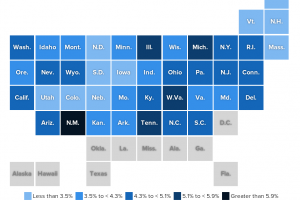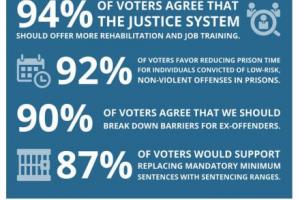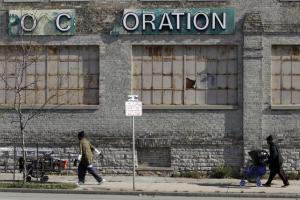Defend the Post Office, Defend Black Workers
Jacobin
 The China-esqsue income for the general labor pool might not spark a backlash against the Chinese, Washington's favorite punching bag. Instead, it will favor future political backlashes against globalization and the corporations seen driving up inequality -- and driving down mobility -- because of it.
The China-esqsue income for the general labor pool might not spark a backlash against the Chinese, Washington's favorite punching bag. Instead, it will favor future political backlashes against globalization and the corporations seen driving up inequality -- and driving down mobility -- because of it.
 The African American unemployment rate is at or below its pre-recession level in 11 states: Arkansas, California, Illinois, Indiana, Michigan, Mississippi, New Jersey, New York, North Carolina, Ohio, and South Carolina. However, a return to pre-recession levels in these states is barely a recovery: in all of these states, black unemployment rates were above 8.0 percent before the recession.
The African American unemployment rate is at or below its pre-recession level in 11 states: Arkansas, California, Illinois, Indiana, Michigan, Mississippi, New Jersey, New York, North Carolina, Ohio, and South Carolina. However, a return to pre-recession levels in these states is barely a recovery: in all of these states, black unemployment rates were above 8.0 percent before the recession.
 Thoughts that huge tax cuts to high-income households will offset a downturn in automobile sales, cuts in public spending, rising college tuition or a dismantling of the health sector are irrational. If theFed raises interests rates, it will threaten a more fragile economy than appears at the moment. The drive to be “normal” in a world that is clearly not normal, may put us in danger of a downturn that will be difficult to recover from.
Thoughts that huge tax cuts to high-income households will offset a downturn in automobile sales, cuts in public spending, rising college tuition or a dismantling of the health sector are irrational. If theFed raises interests rates, it will threaten a more fragile economy than appears at the moment. The drive to be “normal” in a world that is clearly not normal, may put us in danger of a downturn that will be difficult to recover from.
 While there has recently been a push from advocates and policy -- makers alike to reexamine sentencing policy and practice, the negative impacts on former prisoners and people with felony convictions themselves and the economy as a whole will grow in scale unless the burgeoning reform trend continues and accelerates.
While there has recently been a push from advocates and policy -- makers alike to reexamine sentencing policy and practice, the negative impacts on former prisoners and people with felony convictions themselves and the economy as a whole will grow in scale unless the burgeoning reform trend continues and accelerates.
 We should not to romanticise the work of the past, indulge in ‘smokestack nostalgia’, but equally we need to acknowledge a world we may be losing. While the ‘job for life’ may have been a fleeting experience for a few, the social patterns that that stability engendered were profound for generations of workers and can still be seen working their way through the contemporary workplace
We should not to romanticise the work of the past, indulge in ‘smokestack nostalgia’, but equally we need to acknowledge a world we may be losing. While the ‘job for life’ may have been a fleeting experience for a few, the social patterns that that stability engendered were profound for generations of workers and can still be seen working their way through the contemporary workplace
 Historical discrimination, demographics, and public funding have left home care workers at the very bottom of the American work hierarchy. The wages these workers earn are painfully low: the median salary for a personal care aide is $19,910 annually, or $9.57 an hour; a home health aide earns $20,820 or $10.01 per hour. On the Bureau of Labor Statistic's list of 30 fastest-growing jobs, personal and home care aides are the worst paid.
Historical discrimination, demographics, and public funding have left home care workers at the very bottom of the American work hierarchy. The wages these workers earn are painfully low: the median salary for a personal care aide is $19,910 annually, or $9.57 an hour; a home health aide earns $20,820 or $10.01 per hour. On the Bureau of Labor Statistic's list of 30 fastest-growing jobs, personal and home care aides are the worst paid.
Spread the word